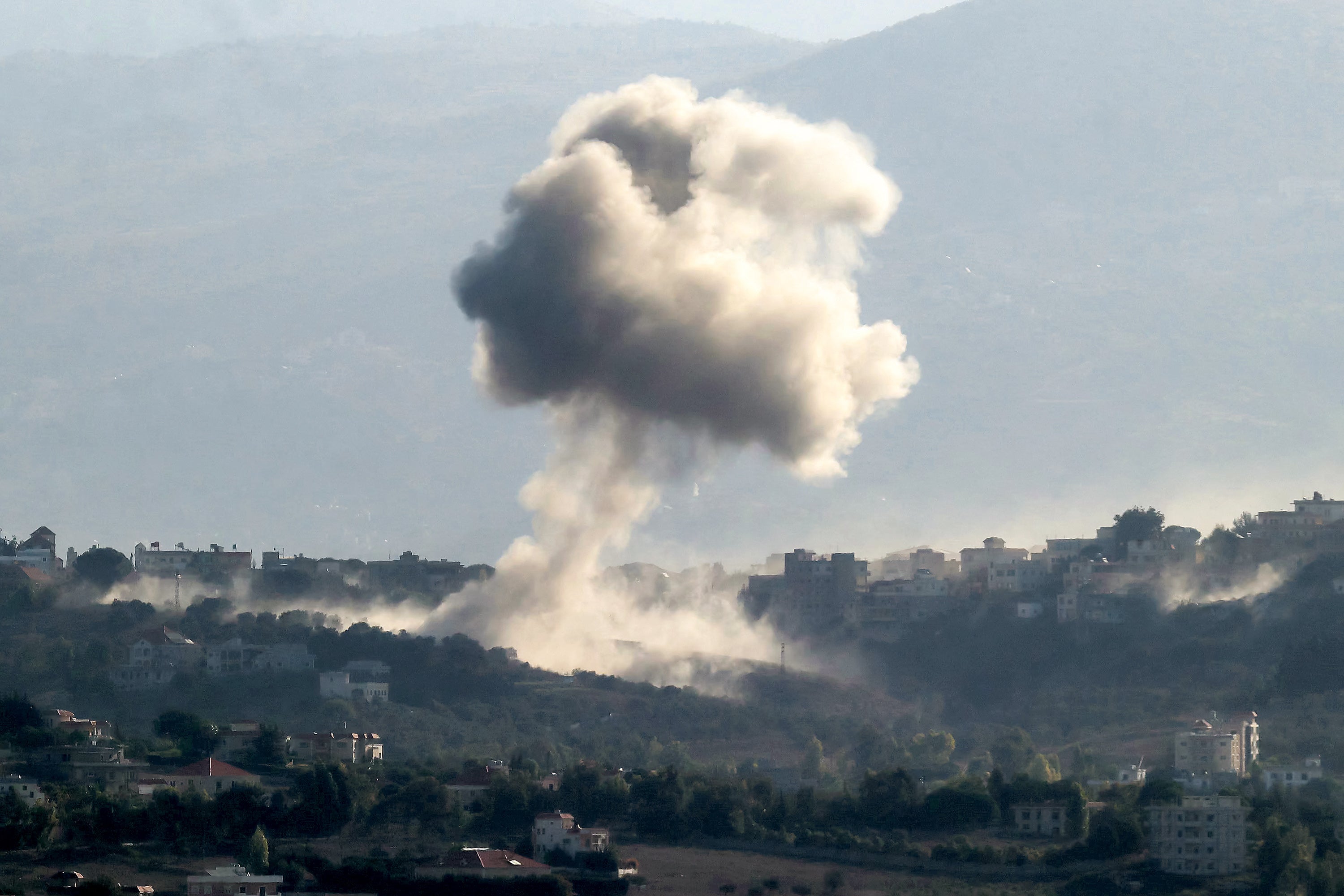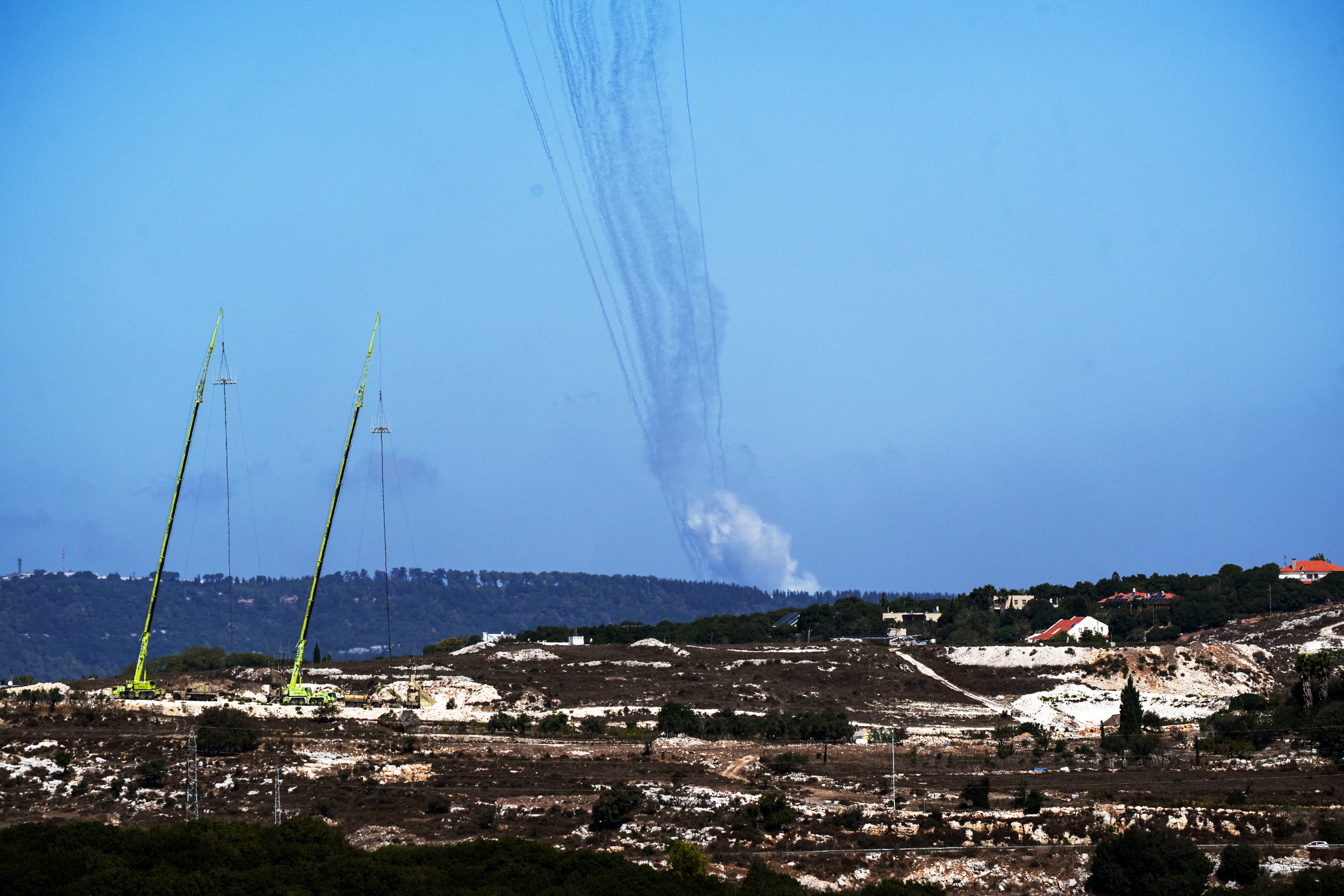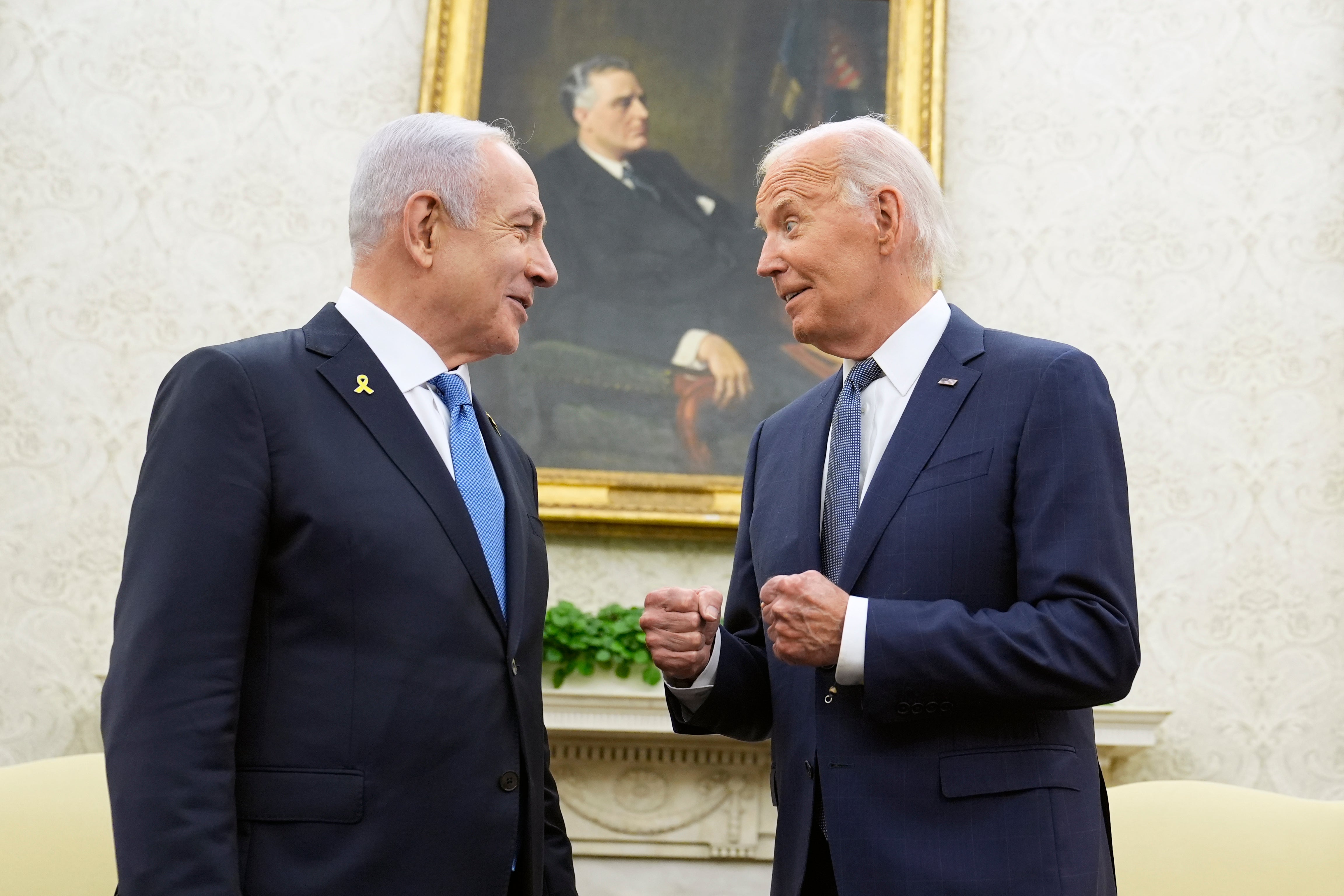Biden and Netanyahu in first call for weeks – with focus on Israeli plans for retaliation against Iran
Middle East is waiting for Israel’s response to missile barrage from Tehran

Your support helps us to tell the story
From reproductive rights to climate change to Big Tech, The Independent is on the ground when the story is developing. Whether it's investigating the financials of Elon Musk's pro-Trump PAC or producing our latest documentary, 'The A Word', which shines a light on the American women fighting for reproductive rights, we know how important it is to parse out the facts from the messaging.
At such a critical moment in US history, we need reporters on the ground. Your donation allows us to keep sending journalists to speak to both sides of the story.
The Independent is trusted by Americans across the entire political spectrum. And unlike many other quality news outlets, we choose not to lock Americans out of our reporting and analysis with paywalls. We believe quality journalism should be available to everyone, paid for by those who can afford it.
Your support makes all the difference.President Joe Biden and Israeli prime minister Benjamin Netanyahu have held their first call in weeks, a conversation that comes as Israel expands its ground invasion into south Lebanon and considers how to respond to Iran's recent ballistic missile attack.
Mr Netanyahu's office also confirmed that the prime minister had recently spoken with former president Donald Trump, who is running again for the White House.
Mr Trump called Mr Netanyahu last week and “congratulated him on the intense and determined operations that Israel carried out against Hezbollah“, according to Mr Netanyahu’s office.
Israel has been discussing how to respond to the latest barrage of missiles from Iran, which the United States helped to fend off.
Mr Biden last week said he would not support a retaliatory Israeli strike on sites related to Tehran’s nuclear programme. Israel’s other choices range from a largely symbolic strike – similar to how Israel responded after Iran launched missiles and attack drones in April – to hitting oil facilities and other infrastructure.
Since the leaders’ last call, Israel has carried out a sabotage and assassination campaign against Iran-backed Hezbollah in Lebanon, where the militant group has continued to fire missiles, rockets and drones at Israel.
On Wednesday, Hezbollah fired a barrage of rockets and shells, following Israel’s claim that it had killed two successors to Hezbollah’s slain leader.
Rocket sirens sounded constantly across northern Israel on Wednesday following heavy fire from Lebanon. Israel’s military said about 40 projectiles were launched at the major port city of Haifa, some of which were intercepted while others fell in the area.
The attack came as the militant group’s acting leader vowed to continue its bombardments that have forced tens of thousands of Israelis to flee the border region. Sheikh Naim Qassem said its military capabilities remain intact despite weeks of heavy Israeli airstrikes.
In response, Israel deployed more ground troops into southern Lebanon and said it had killed “[Hezbollah leader] Nasrallah’s replacement, and the replacement of the replacement.” Israeli defence minister Yoav Gallant said Hashem Safieddine, the man expected to succeed Nasrallah, had probably been “eliminated” but did not name the second person.

The Israeli military reported that three of its soldiers were seriously wounded on Tuesday and Wednesday during fighting in southern Lebanon. Air raid sirens went off in northern Israel on Wednesday morning after Israel resumed bombing Beirut’s southern suburbs, a Hezbollah stronghold, the previous night.
Separately, in the east, Hezbollah says it successfully ambushed Israeli troops overnight as they attempted to close in on the town of Blida. They also claimed to have pushed back another platoon trying to enter the Labouneh area, close to the coast in western Lebanon. Israel has not commented on the incidents.
The increased tensions in Lebanon, following a year of war between Israel and Hamas in Gaza, have sparked concerns about a broader Middle East conflict that could involve Iran and Israel’s key ally, the United States.

Israel’s bombardment of Lebanon has killed more than 2,100 people, most of them in the last two weeks, and forced 1.2 million people from their homes.
British foreign secretary David Lammy met with leaders in Bahrain and Jordan on Wednesday to discuss efforts to bring security and stability to the Middle East and reiterate the UK’s call for an immediate ceasefire in Gaza and Lebanon.
Hezbollah’s deputy leader, Naim Qassem, expressed support on Tuesday for efforts by Lebanon’s parliament speaker to broker a ceasefire and, for the first time, the end of the war in Gaza was not mentioned as a condition for halting fighting in Lebanon. Netanyahu’s office declined to comment on Qassem’s statements.
Associated Press contributed to this report
Join our commenting forum
Join thought-provoking conversations, follow other Independent readers and see their replies
0Comments